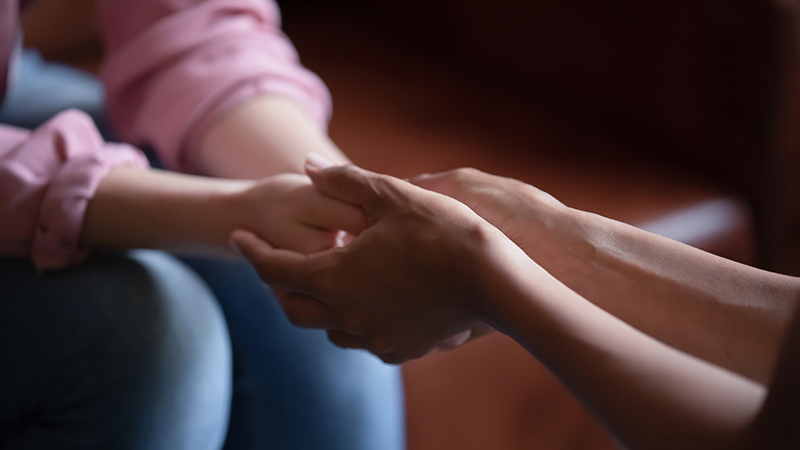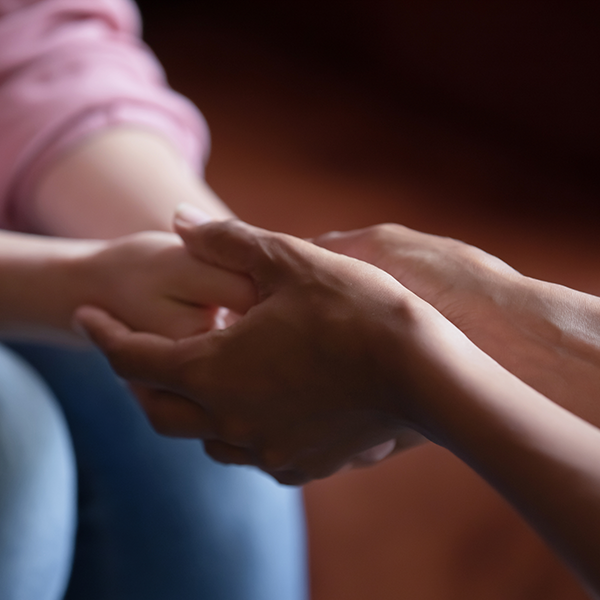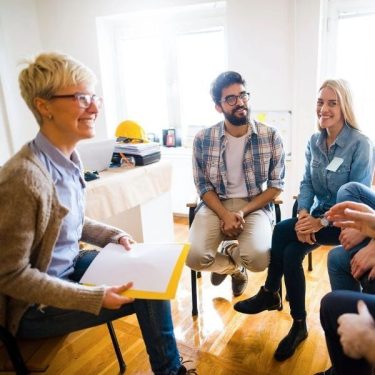In the ongoing opioid crisis, grief has become an uninvited but constant companion for those on the frontlines of care.
In 2023 alone, 107,543 people died from overdose. To put that in perspective, imagine 4,302 school buses filled with people who will never return home. If we packed all those lives into MetLife Stadium, there wouldn’t be room to hold everyone. And these numbers do not include deaths from alcohol (178,307) or other non-opioid substances.
The grief of losing thousands of busloads and entire stadiums full of people is felt not only by loved ones, but by those working on the frontlines — particularly the peer workforce.
Today’s drug landscape, shaped by the increased potency and widespread presence of substances like fentanyl, has made overdoses and deaths a regular occurrence. For peer specialists — individuals with lived and living experience of substance use disorder — this grief can be especially painful. Unlike other health professionals, peers engage in mutual self-disclosure, forming bonds with those they support that are far more intimate than the typical provider-client relationship. They are not distant observers; they are on the frontlines, answering late-night crisis calls and driving clients to peer support meetings. This relational approach leaves peers particularly vulnerable to vicarious trauma and survivor’s guilt, adding layers of complexity to their grief when a patient dies. The loss often feels deeply personal, and the burden of losing someone they were fighting alongside is difficult to carry.
As we work to better supervise and integrate the peer workforce into increasingly clinical settings, it’s essential to acknowledge the unique role peers play and how client deaths affect them differently.
Peer specialists, by the very nature of their work, often find themselves deeply embedded in the lives of those they support, and their grief cannot be compartmentalized in the same way it might be for other professionals.
This emotional burden is unique to the peer workforce and requires thoughtful support systems to safeguard peers’ wellbeing.

However, traditional clinical supervision may fall short of addressing the distinct challenges that peers face. Recognizing this, organizations must develop strategies that support peers both emotionally and practically, ensuring they have the resources and flexibility needed to cope with the demands of their role.
Emotionally, providing structured debriefing sessions, crisis counseling and ongoing supervision tailored to the peer experience is essential. Emotional support isn’t just about helping peers cope with loss — it’s about fostering a sustainable environment where they can thrive. To better serve peers, we must acknowledge the depth of their grief. Some may find comfort in group discussions or formal support, while others prefer to process privately.
Peers need the freedom to grieve on their own terms, with spaces for emotional recovery, optional reflection and remembrance rituals to honor lost clients. Organizations should prioritize both immediate and long-term support for staff, while fostering a workplace culture that normalizes grief as an inevitable part of the job. Grief isn’t something to hide or push through — it’s something to acknowledge and support.
Practically, support begins with flexibility. Peers need the option to take time off or manage a lighter caseload when dealing with loss. The toll of repeated deaths can lead to emotional exhaustion, and without the space to recover, many peers will feel overwhelmed and unable to continue in their roles. Preventing burnout isn’t about “solving” grief but recognizing it as an ongoing process.
Truly preventing burnout is not about treating grief as a problem to solve, but instead recognizing that it is an ongoing process that happens inside and outside of work.
In this context, offering a living wage becomes one of the most meaningful ways to support peers, ensuring they have the financial stability to focus on healing, rather than just survival. If a peer specialist is juggling multiple jobs just to make ends meet, they won’t have the time or energy to properly grieve, no matter what other supports are in place. Grief cannot be processed between shifts. In addition to financial support, providing education is another practical way to help. Peer specialists need to be equipped with knowledge about grief, trauma and self-care. Offering workshops or training sessions on these topics can empower peers to better understand their emotional responses and develop effective coping strategies.
Our peer specialists are not just service providers; they are individuals with lived experience who stand shoulder to shoulder with clients, deeply invested in their recovery journey. With this deep connection comes the heavy burden of losing people and having to move forward in a system that doesn’t always recognize the emotional toll those losses take. Grief will always be a part of this work. But by offering meaningful, flexible and compassionate support, we can help the peer workforce bear the weight of this loss without being crushed by it.




